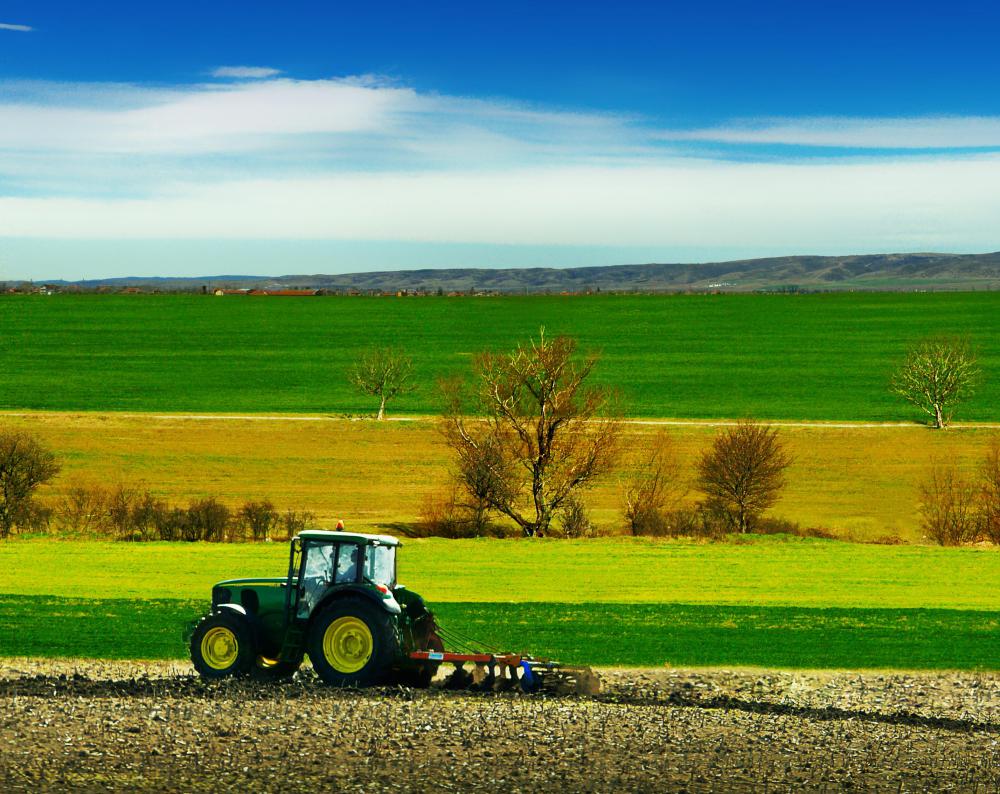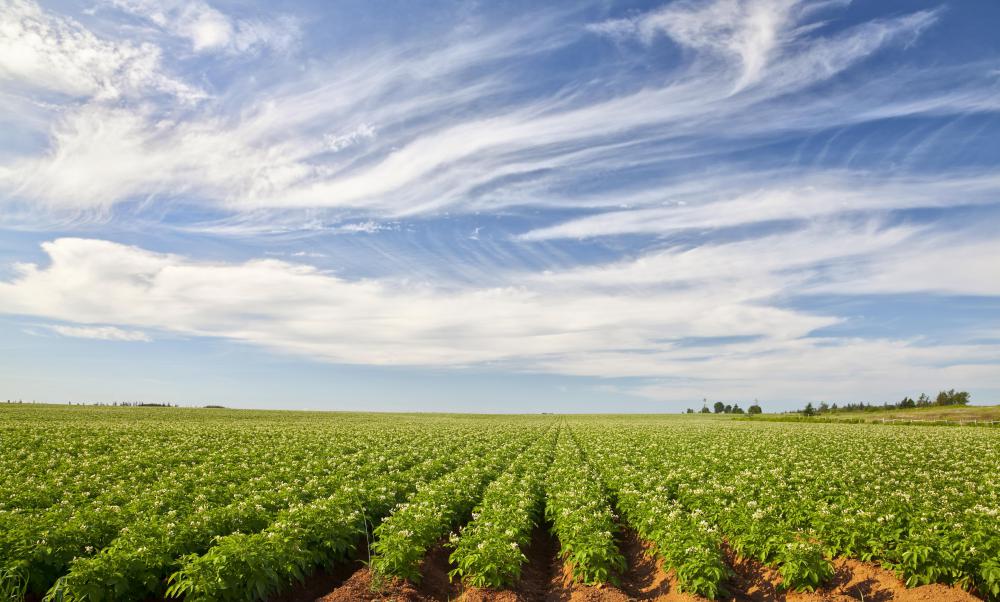At SmartCapitalMind, we're committed to delivering accurate, trustworthy information. Our expert-authored content is rigorously fact-checked and sourced from credible authorities. Discover how we uphold the highest standards in providing you with reliable knowledge.
What is Agricultural Economics?
Agricultural economics is the study of applying economic management principles to food farming. The result, ideally, is an agriculture industry that better understands efficiency, sustenance and market demand. This field looks at all elements of food production and applies rational thought and planning as a whole. From crops, livestock, land usage and soil content, all aspects of farm life are examined, including how its connection to one another can be strengthened. Many times, this involves learning about the latest technology to help crops or livestock, but it also might require a knowledge of what has and has not worked in the past.
Agricultural economics is a relatively new field, considering the countless years that people have been farming. Interest began to mount in the early 1900s, when many economic thinkers around the globe began focusing attention to agriculture. Noting that the act of planting, harvesting and distributing crops and livestock was inefficiently performed, academics believed that farms around the world could see greater yields and profits with a change of thought. Additionally, many universities and colleges opened agricultural economics programs with the intent of preparing students for a career in this field.

Careers in economical agriculture are as wide ranging as the crops produced around the world. The principles of farm economics, agricultural production and management can be directly applied to being a successful farmer, but there are a multitude of other options. Seed and chemical companies utilize agricultural economic thought in their production and development, grain elevator companies and equipment manufacturers must understand the economic landscape for each crop in order to stay relevant, and salesmen use agricultural economics to better serve their clients with the products they demand.

Since its inception, this field has helped further the science behind farming, too. Advances in food preservation and shipping techniques have allowed a myriad of fruits, vegetables and meats to reach grocery stores. Currently, many economists see the implementation of microcomputers in agriculture as another step toward streamlining farmland economics.

Agricultural economics is not a term that fits neatly within a single definition. It is the accumulation of many schools of thought on practically every aspect of agriculture, from planting a seed to serving food on a dinner table. It contains many different careers and needs that are constantly evolving as technology and economic thought grow.
AS FEATURED ON:
AS FEATURED ON:














Discussion Comments
While the old family farm has declined in prominence here in the South since roughly the 1970s, corporate farming has grown tremendously. And those efficiency-obsessed operations are looking for accountants who know how to maximize profits and help run efficient organizations.
Majoring in accounting while minoring in agriculture is a good idea for college kids wanting to go on to good careers in this part of the world.
Post your comments